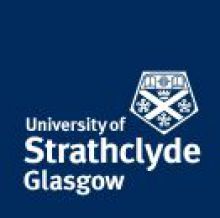Former colleagues of a professor who was found guilty of sex offences against male students believe that he could have been stopped much sooner.
Kevin O’Gorman, a former director of internationalisation at Heriot-Watt University, was found guilty earlier this month of 14 counts of assault against eight young men, committed between 2006 and 2017. During this time, the professor of management also worked at the University of Strathclyde.
Former colleagues of O’Gorman at both institutions told Times Higher Education that they wanted investigations to reveal exactly what senior management knew and when.
O’Gorman, 45, worked at Strathclyde from 2005 until he was suspended in 2011 after a complaint was made against him. He left the following year, apparently with references and a pay-off, and no report was passed to the police.
Strathclyde has now announced an investigation into its handling of the complaint and the subsequent investigation.
One academic who worked with O’Gorman there said concerns about him had been reported to senior management as early as 2009, but at first these were “brushed aside as him being a flamboyant character, being very caring towards the students”.
She told Times Higher Education that “blind eyes were turned at both institutions” and that O’Gorman could have been “removed from a position of power” much earlier.
One of O’Gorman’s victims at Strathclyde, Fraser Blevins, waived his right to anonymity to tell the Sunday Mail that it “makes me sick to think Strathclyde shifted him to another uni and paid him off”.
“If they had sacked him like they should have, he would have been stopped there and then and wouldn’t have gone on to hurt other students,” Mr Blevins said.
O’Gorman joined Heriot-Watt in 2012. Since his conviction, it has emerged that complaints had been raised about O’Gorman’s conduct in 2014, but there was no formal internal investigation until three years later. O’Gorman was dismissed and the case was referred to the police.
One academic who worked with O’Gorman at Heriot-Watt described him as “manipulative” and a “bully” and said he “used his power against other people”.
She said she knew at least three people who had made a report about O’Gorman to Heriot-Watt’s human resources department in 2014.
“There are victims that shouldn’t have been victims. It was allowed to go on,” she said.
A third academic, who worked with O’Gorman at Heriot-Watt, also said that concerns had been raised as early as 2014.
“They wanted to ignore it all the way through. Several senior academics drew it to the attention of senior management…and no action was taken,” he added.
The academic called on Heriot-Watt to follow Strathclyde’s lead and set up an independent inquiry.
Sir Jim McDonald, Strathclyde’s principal, said there were “questions we must ask about our processes and procedures”. The QC-led inquiry would, he said, “establish what we knew at the time, what we ought to have known, and what should have been in place to expose such wrongdoing”.
A Heriot-Watt spokesman said that “informal concerns” were raised about O’Gorman on two separate occasions in 2014 and 2015 but that they were not related to “any form of sexual misconduct”.
“As soon as formal complaints, which were of the nature that led to his dismissal and subsequent criminal proceedings, were brought to our attention in 2017, we acted in line with our disciplinary procedures. Dr O’Gorman was dismissed, and we contacted Police Scotland,” he said.
The Times reported that O’Gorman resigned from a senior position in Clyde Scouts in 2016 when the organisation received an allegation concerning a safeguarding issue dating from his time as a trainee priest in 2003.
O’Gorman is due to be sentenced on 18 September.
POSTSCRIPT:
Print headline: Ex-colleagues say abuse case professor ‘could have been stopped sooner’
Register to continue
Why register?
- Registration is free and only takes a moment
- Once registered, you can read 3 articles a month
- Sign up for our newsletter
Subscribe
Or subscribe for unlimited access to:
- Unlimited access to news, views, insights & reviews
- Digital editions
- Digital access to THE’s university and college rankings analysis
Already registered or a current subscriber?










